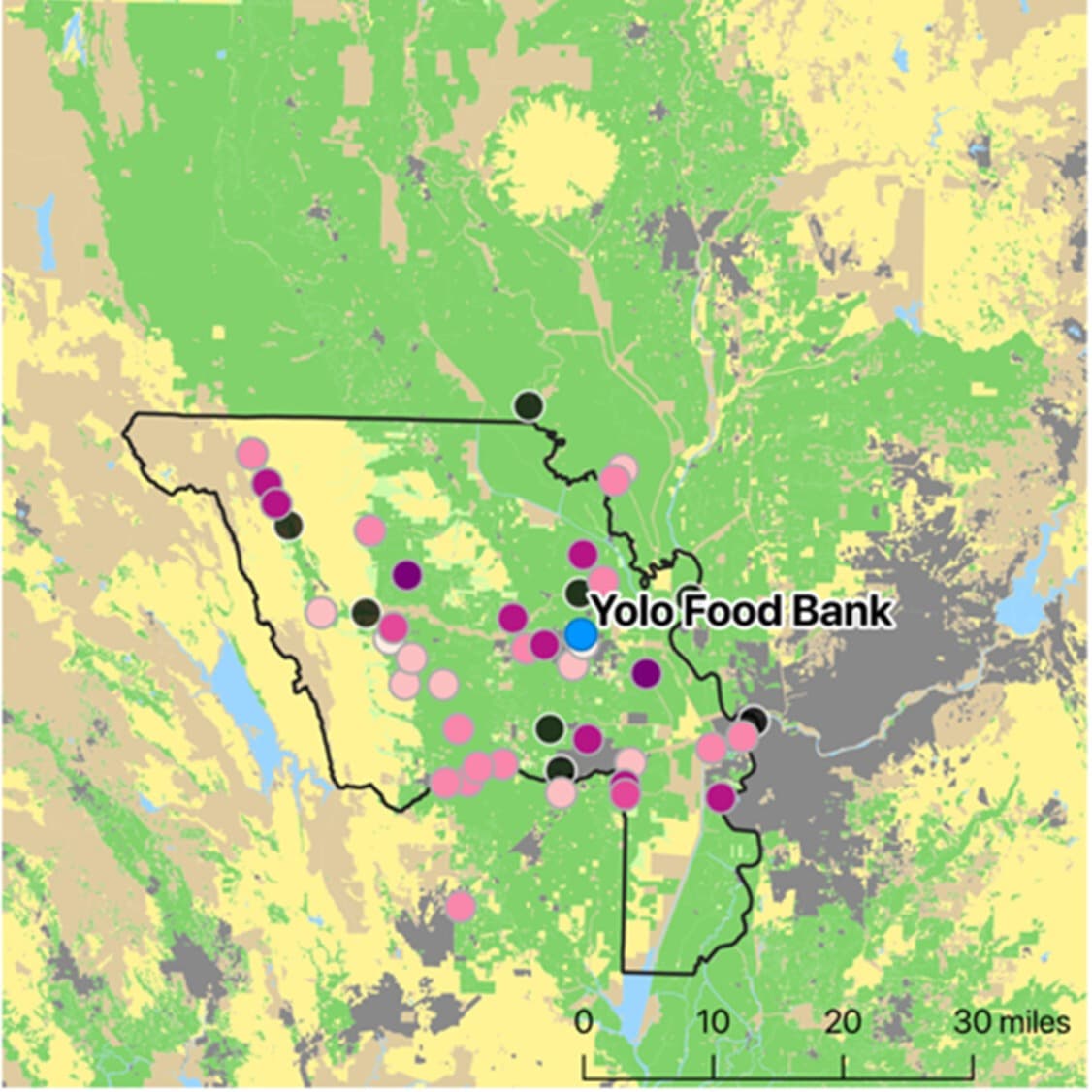
Farm to Food Bank Networks
This project draws on geospatial network analysis and in-depth interviews to explore relationships between local food producers and a food bank.
View projectIn a recent study, we explored the dependencies between community food security and local food movements. We analyzed 2.97 million pounds of food-bank donations from 296 organizations, conducted network analysis of the local food system with 77 farms and 439 market connections, and carried out interviews with food-bank donors and staff.
We found strong ties between the food bank and local food producers, particularly organic producers selling directly to the public. Even when the food was decommodified, however, producer motivations for donating were not purely based on social responsibility to feed the hungry. Rather, they also acknowledged the financial and marketing benefits of donating in terms of receiving tax credits, participating in procurement programs, and improving public relations.
Our findings suggest that policymakers focused on local food systems and food security should consider these factors and their implications for food banks.
Key Facts
Across the U.S., more than 60,000 food assistance organizations serve over 46 million people annually.
Food producers are motivated to donate to local food banks by a variety of factors ranging from social responsibility to tax credits and other financial benefits.
To better address food insecurity, policymakers should focus on the right to food rather than relying on the interests of donors.

This project draws on geospatial network analysis and in-depth interviews to explore relationships between local food producers and a food bank.
View project